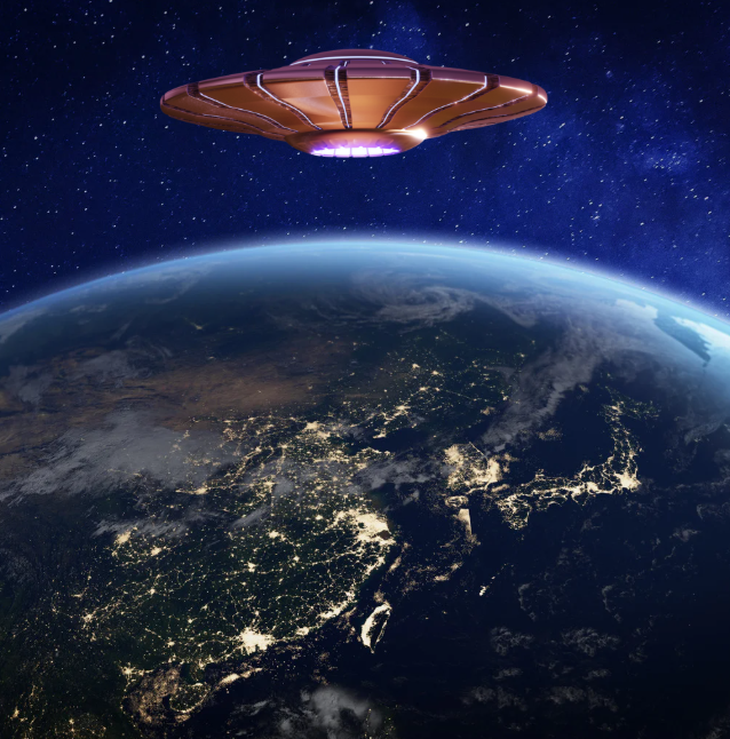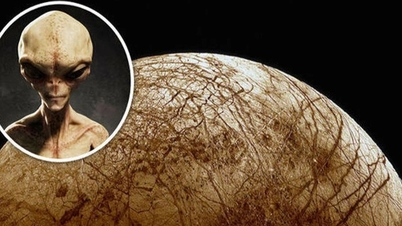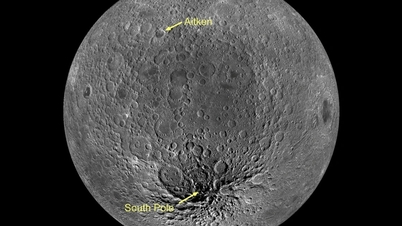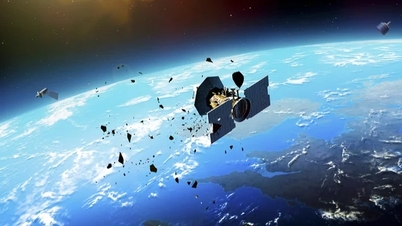
For centuries, people have been curious about the question of whether life really began on Earth.
A study published on the online scientific platform arXiv shows that the possibility of life starting on Earth is extremely low, thereby reviving the controversial hypothesis that life could have originated extraterrestrial and been brought to the blue planet by many different routes.
New research by Professor Robert Endres, a theoretical biologist at Imperial College London, used mathematical models to analyze the likelihood of the emergence of the first primitive cell, or protocell.
The results show that the probability of molecules in Earth's early environment spontaneously combining into life was almost zero due to the effect of entropy, the natural tendency from order to chaos.
Endres compares the process to throwing a puzzle into the air and waiting for the pieces to automatically assemble into a complete picture, which is almost impossible.
While admitting that impossibility does not mean absolute impossibility, Endres suggests that another speculative but plausible hypothesis, panspermia, should be considered.
According to this hypothesis, life or the basic ingredients that make up life could have originated in space and come to Earth via comets, meteorites, or even been deliberately seeded by an alien civilization.
He relates this to the fact that today humanity is also seriously researching the possibility of transforming planets like Mars or Venus to sustain life.
However, many experts remain skeptical. Dr. Simon George of the SETI Institute said that intentional panspermia is a beautiful idea in science fiction but has little basis in reality. He stressed that the geological and chemical conditions of the early Earth may have been sufficient for life to arise.
Another study published in the journal Science Advances in August 2025 also reinforces this view. A team of scientists at the University of Bern (Switzerland) believes that life on Earth originated from a random collision event with the asteroid Theia, which brought essential elements including water, an important factor that made Earth suitable for life to develop.
The mystery of the origin of life
According to many scientists, the major limitation of the panspermia theory is that it does not answer the question of where life began, but only moves the problem to another planet in the universe. At the same time, this hypothesis makes the search for life outside Earth more complicated.
If one day humanity discovers microorganisms on Mars or Europa, will it be native life or just Earth life that has been spread into space?
While the final answer is still far from certain, Robert Endres’ research shows once again that the origin of life remains a great mystery. Panspermia may not be a definitive answer, but it does open up an interesting perspective that life may not be the exclusive property of Earth, but the result of broader influences from the universe.
Source: https://tuoitre.vn/nghien-cuu-gay-soc-su-song-tren-trai-dat-co-the-khong-he-bat-dau-tu-trai-dat-20250927114229503.htm



![[Photo] Deep sea sand deposits, ancient wooden ship An Bang faces the risk of being buried again](https://vphoto.vietnam.vn/thumb/1200x675/vietnam/resource/IMAGE/2025/11/13/1763033175715_ndo_br_thuyen-1-jpg.webp)

![[Photo] Special class in Tra Linh](https://vphoto.vietnam.vn/thumb/1200x675/vietnam/resource/IMAGE/2025/11/14/1763078485441_ndo_br_lop-hoc-7-jpg.webp)

































































































![Dong Nai OCOP transition: [Article 3] Linking tourism with OCOP product consumption](https://vphoto.vietnam.vn/thumb/402x226/vietnam/resource/IMAGE/2025/11/10/1762739199309_1324-2740-7_n-162543_981.jpeg)






Comment (0)